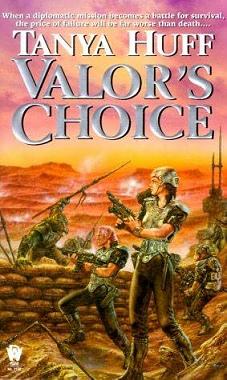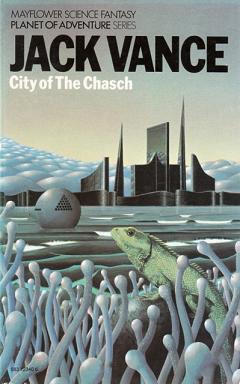Damien G. Walter’s post about 7 literary Sci-Fi and Fantasy novels you must read annoyed me from the start, with its misspelling of science fiction as “sci-fi” and its demand I must read these books; no I don’t. I hate that sort of hucksterism. Good books you don’t have to read, good books you want to read.
Those are just minor irritations though, the real problems start with the introduction:
At any given moment on the inter-webs there are probably dozens of irrate Sci-Fi / Fantasy fans getting agitated about those damn literary authors coming and writing genre, while genre writers themselves miss out on the credit they deserve. Which is about as silly as shouting at someone for stealing your flowers when they have plucked some bluebells in the forest. (Unless you happen to own an entire forest. Do you? Well OK then.) SF and Fantasy are common ground that any writer can build their house upon, but pretending to own them just makes you look silly.
I’m sure there are fantasy and sf fans who are annoyed just by the ide of socalled literary writers poaching on their terrain, but they are in the minority. Reasonable fans have no problem with non-genre science fiction or fantasy, what they have a problem with is with:
— Mainstream writers who deny they’re writing science fiction when they clearly are writing science ficion, aka the Atwood syndrome.
— Mainstream writers who write science fiction that’s outdated, turgid and using well established sf tropes genre writers have long mined out, in a way that makes it clear said writers have never read any science fiction themselves and are unaware they’ve reinvented the wheel yet who still get lauded for their cleverness in doing so — Ishiguro disease.
The latter is something that’s luckily gotten rarer as science fiction itself became more mainstream, but the first still happens more often than it should. Neither is a concern you can wave away with an analogy about plucking bluebells. It’s not fannish defensiveness to be annoyed by this. Writers like Atwood who deny writing science fiction help reinforce the idea that science fiction is something you need to be ashamed off, something dirty, while writers who just regurgitate stale old ideas do science fiction no good either.
Walter goes on:
And it’s doubly silly if you’re an aspiring writer of the fantastic, because you may be hurling away the best chance to learn you will ever get. If as a writer you are only as good as what you read, then how good can you expect to be if your book diet is filled with derivative works of pulp fiction? A fast food diet may please the taste buds, but you wouldn’t expect to dine out on Big Macs every day and become an olympic athlete. So why expect to write even a good book without reading them first?
If I see one more pulp fiction/junk food metaphor I’ll scream and scream until I get sick. I can you know. Why equate fantasy and science fiction with “derivative works of pulp fiction”? Is Walter really saying there are no science fiction books, no fantasy writers that can equal literary novels, mainstream writers? Delany, Russ, Aldiss, Lem, LeGuin, Dunsany, Wolfe, Moorcock, Harrison, Jones, McHugh, Gentle, all these and many more cannot hold themselves with the best literary novelists, these are no writers you have to work for to get their writing, that offer as much intellectual stimulation? If you truly think that, you’re not likely to convince me your opinion on the “7 literary Sci-Fi and Fantasy novels I must read” is going to be worth much; if not, why say it?
What make’s these novels distinctly ‘literary’ as opposed to the genre novels they resemble? Put simply, they are better. More ambitious, deeper in meaning, both intellectual and poetic. They might be harder work for readers trained to the easily digested conventions of commercial fiction. But if you make the effort to read these books on their own terms, there are incredible feats of imagination to discover in their pages. They feature many of the tropes of genre SF & Fantasy, but in the hands of writers who understand what those fantastic metaphors are really all about. But most of all these are books which reveal something about what it is to be human and living in our strange world. If genre novels create fantasy worlds to escape in to, these books show the fantastic reality of the world we all live in.
Again, there are no science fiction or fantasy writers who do that for you? You can only think of these genres as escapism, pulp fiction, not something that can ever “reveal something about what it is to be human and living in our strange world”? Why bother reading it then?
Now the actual list is …not bad, to be honest, if a bit dated, with The Road (2006) being the most modern work on it, but the introduction just ruffles all my feathers. It seems needlessly dismissive of science fiction and fantasy, approaching its readers as junk food devouring slobs who have to be insulted into reading the right books. Had Walter just stuck to listing these books and not gone for the hard sell, this would’ve been an interesting post. Now it’s just annoying and snobbish. At a time when there are quite a few literary writers who dabble in science fiction without being traumatised if somebody calls their works that and sf writers crossing over with few problems, even if they have to lose an initial here or there, it seems particularly silly to revoke this supposed division under the guise of getting these sf slobs to read some proper books.

